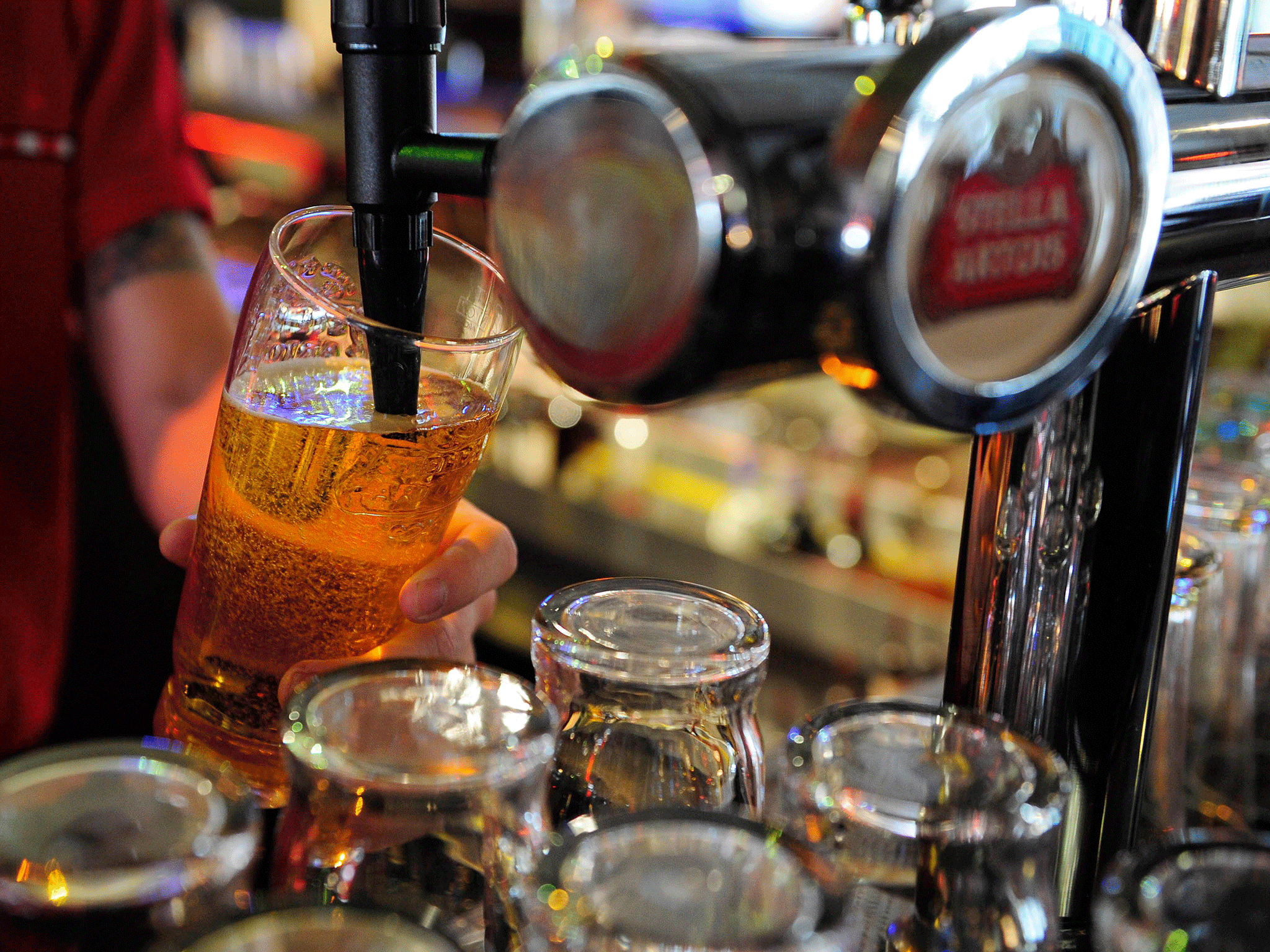Government could limit alcohol sales at UK airports in bid to curb rising air rage and drunken behaviour on flights
Ministers reportedly consider tougher licensing laws for terminal bars after number of ‘disruptive passenger’ incidents doubles

The Government could move to limit the sale of alcohol at airports in an effort to curb increasing drunken behaviour on flights.
It is understood the Home Office is considering ending rules which currently allow bars and pubs at terminals to operate outside UK licensing laws.
The move could restrict the sale of alcohol to passengers just before they board flights, potentially putting an end to early-morning drinks for holidaymakers.
A report by the Civil Aviation Authority (CAA) found there were 418 instances of disruptive behaviour by passengers on UK flights in 2016: more than double the number seen the year before.
Recorded cases included passengers involved in general drunken behaviour, as well as incidents of customers acting in an abusive or threatening manner towards cabin crew.
The CAA says acts of drunkenness on an aircraft are punishable by up to two years in prison or an unlimited fine.
The Lord’s Licensing Act 2003 Committee has previously called on ministers to place restrictions on the sale of alcohol at airports, in an attempt to tackle the rising number of air rage incidents.
In a response to the recommendations published in November, the Government said it would run a series of consultations during 2018 to seek advice on “limiting the impact of disruptive passengers”.
The Government’s response read: “With over 260 million passengers travelling through the UK airports annually, any disruptive passenger behaviour is entirely unacceptable and an issue that warrants further examination.
“While the number of disruptive events remains small compared to the total passenger numbers, the occurrences seem to be on the rise.
“The most serious instances can even evolve into a situation that causes a safety issue.
“Ensuring the safety of all passengers is a priority for the Government, and we are committed to maintaining a travelling environment that is both safe and enjoyable for all passengers.”
A Home Office source said it would be asking for evidence later this year to assess the potential impact of implementing the Licensing Act on airport bars, with a view to reducing the rate of alcohol-related disorder.
The airline industry has seen a string of high-profile controversies involving drunk passengers in recent months.
A Jet2 passenger was jailed for seven months in January last year, after taking control of a plane’s intercom system while drunk to to demand more alcohol during a flight from Manchester to Tenerife.
In October, a British woman was jailed for 20 days in Canada after she drunkenly lunged at passengers on a Manchester to Cancun flight, forcing the aircraft to make an emergency landing in Quebec.
A Home Office spokesperson said: “Hundreds of millions of passengers travel through the UK’s airports and they should be able to enjoy their holidays without having their flight disrupted by a small minority of people.
“There are already tough penalties in place for drunkenness on an aircraft – you can be imprisoned for up to two years or given an unlimited fine.
“Pilots also have the power to issue the removal passengers from the plane if they are drunk and the safety of the aircraft or its passengers is threatened.”
Join our commenting forum
Join thought-provoking conversations, follow other Independent readers and see their replies
Comments
Bookmark popover
Removed from bookmarks